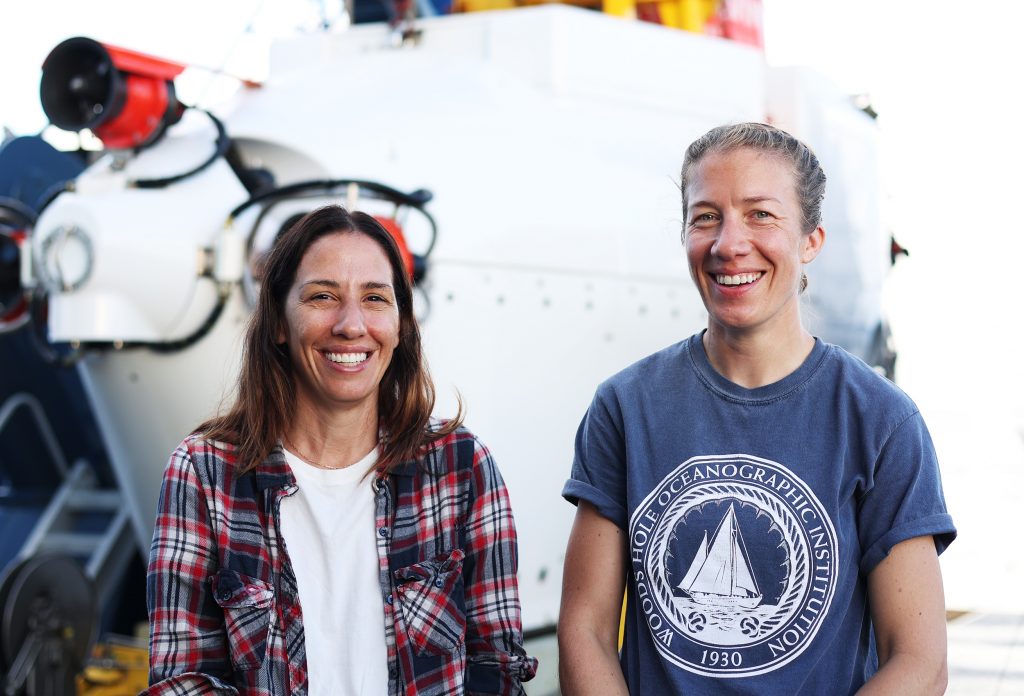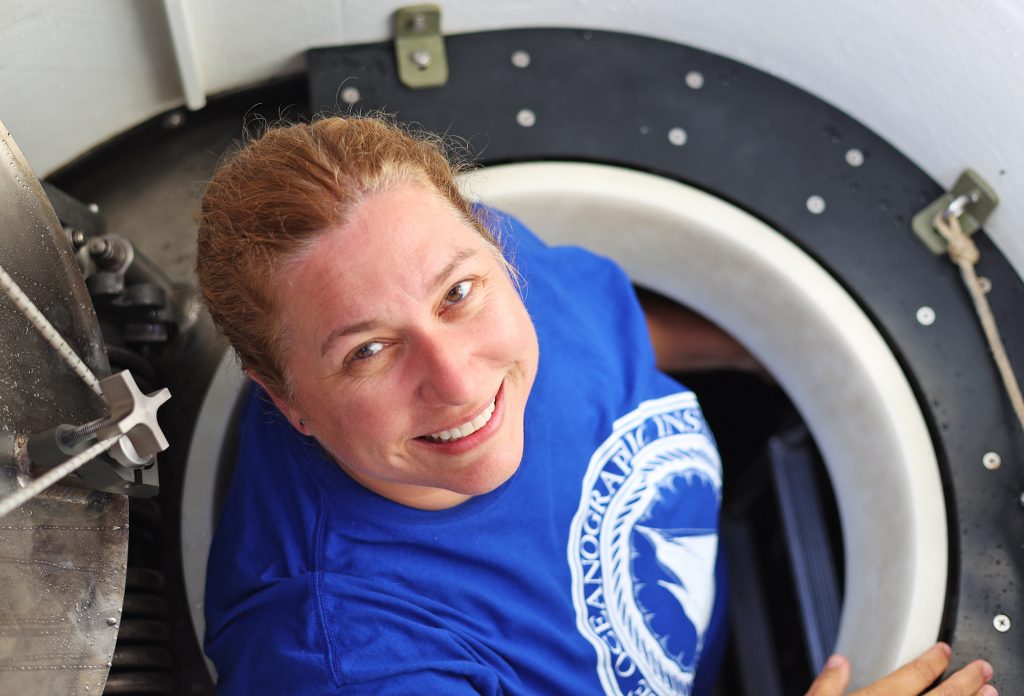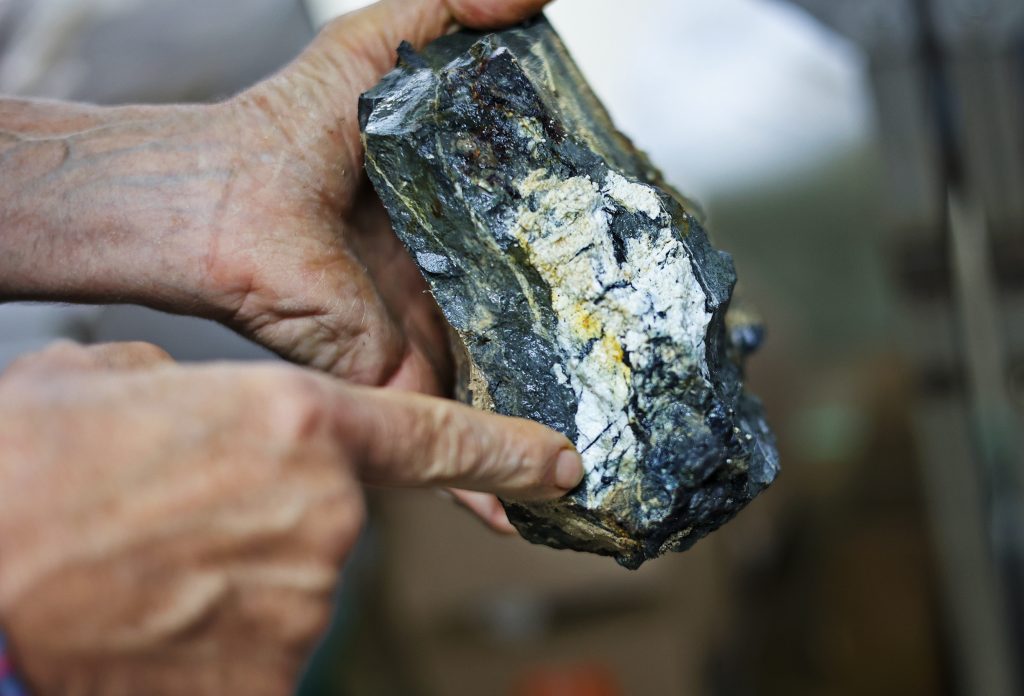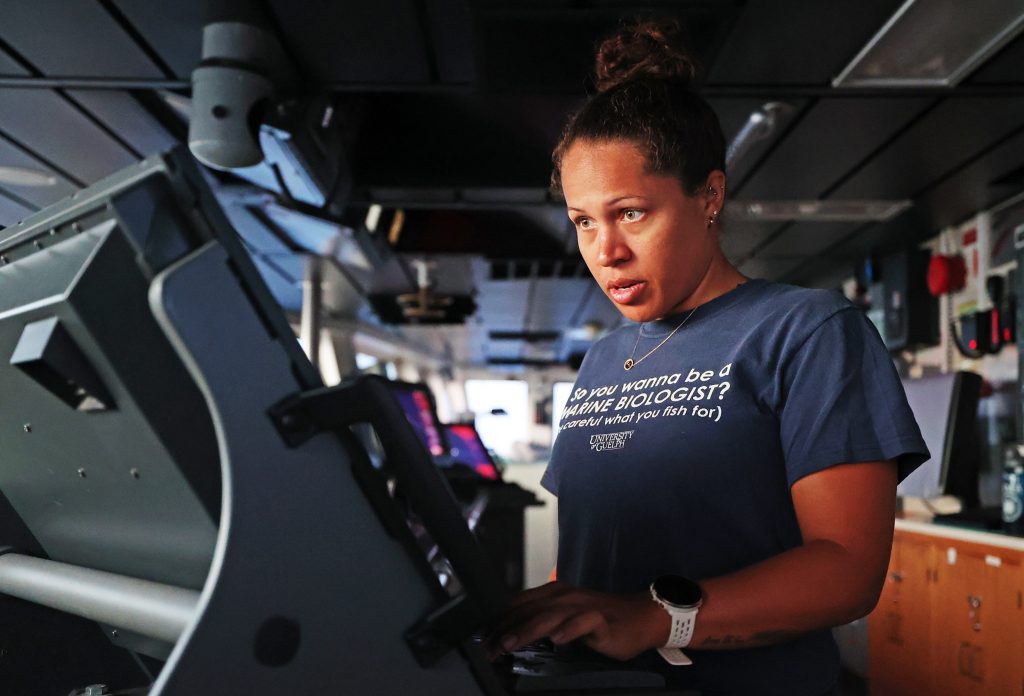Alvin Science Verification by the Numbers

The noisy rip of packing tape echoes across the empty Main Lab aboard R/V Atlantis. As our science team packs up all their equipment, samples, and supplies, I stand with Adam Soule, reviewing a list of facts and figures from the past month.
Here are a few of them:
14 dives in Alvin
15 millimeters rate at which plates at the Cayman Rise are separating each year
4,960 meters depth of Beebe Vent Field, world's deepest known hydrothermal system
102 hours Alvin spent submerged
53 hours spent exploring the seafloor
11 scientists made their first dive in Alvin
122 samples were collected from the seafloor
6,322 meters depth at our deepest dive site
2,780 nautical miles covered by R/V Atlantis
140 pounds of coffee consumed
Anna Michel walks over to see what we're looking at.
"The numbers are impressive," she says. "But that list doesn't include the countless hours of hard work from each member of the team-that's something you can't quantify."
Michel is right. Another impossible metric to calculate is the number of people and all the planning and preparation that came before this expedition. Sending Alvin deeper than it has ever gone before is no small feat and everyone on board (and across the deep submergence community) is thrilled with the success of this mission.
"The effort to get Alvin to 6500 meters has spanned over two decades, and countless people have contributed to making that happen," says Expedition Leader Randy Holt. "Now, as we pull into Tampa, we close that chapter and open a new one."
This expedition was a major success-not just for our team on board, but for the Alvin program and the entire scientific community.
"The new capabilities of a 6500-meter rated Alvin will continue the tradition of enabling generations of scientists the opportunity to make discoveries that will change the way we view the ocean and our world," Soule says. "It's an honor to be a part of that tradition."




